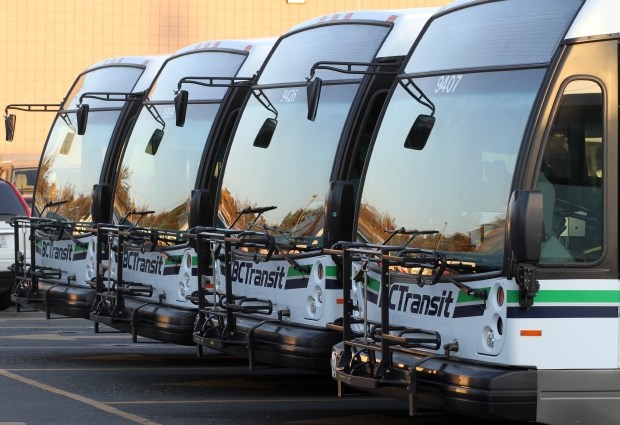 There’s a word that describes the changes the government made in this week’s budget for disabled people with bus passes.
There’s a word that describes the changes the government made in this week’s budget for disabled people with bus passes.
It starts with “chicken.” You can fill in the last syllable.
One of the moves dealt with benefits to disabled people. It started out on a good note. Income assistance rates have essentially been frozen for nine years, to the point where the monthly cheques just aren’t enough. So with a few hundred million dollars in surplus money available, they made a good call. They dedicated $170 million over three years to increase income-assistance rates to a very vulnerable group, persons with disabilities.
It will take effect in September and could amount to up to $77 a month for clients. It’s a welcome move and the government deserves congratulations.
But linked directly to that is a move that undoes a lot of the good they’re trying to accomplish. With one gratuitous swipe, they will claw back a good chunk of the increase from many recipients, by imposing a new higher charge for transit passes.
So at first glance, it looks like an increase of up to $77 a month. But subtract the new cost of bus passes that will be imposed and it nets out to be far less, about $25, depending on where you live.
Finance Minister Mike de Jong made an issue of the fairness of the current system. There are 100,000 disabled people — 35,000 have bus passes paid by the ministry, 20,000 get a different transportation subsidy and 47,000 don’t get either. They live in areas without public transit, or just don’t use it for assorted reasons.
So all of a sudden the government has pronounced as “unfair” an arrangement that’s lasted for years.
“We think all British Columbians, no matter where they live, deserve to have their need to move about taken into account,” de Jong said.
Rather than provide a transportation subsidy that benefits only some, all clients will get an extra benefit of up to $77, “and the freedom to make their own choice about how to meet their own unique transportation needs.”
And that freedom of choice comes with a price tag that, depending where they live, will eat up a fair chunk of benefit hike.
The choice is basically this: Use the extra new money for living expenses or devote much of it to the cost of a bus pass every month.
Some nice sentiments were expressed about making life a little less hard and measuring society by how much help it offers the most vulnerable. But that seems to have gone over the heads of disabled people and their advocates, who are aghast at the move.
Jane Dyson, named to the Order of B.C. last year for her work with the Disability Alliance, came to Victoria just last week to appear at an event where simpler disability eligibility rules were announced. She applauded the move and noted a couple of other encouraging changes recently. Earning exemptions have been made more favourable and asset limits for the disabled increased.
But on Friday, she said she is quite stunned at the bus-pass move. It was a huge surprise that has a punitive effect on people. The benefit increase was at least a start on improving the rates. But the bus pass takes most of it back.
A bus pass that used to cost a $45 administration fee a year ($3.75 a month) for some people will soon cost $52 a month. To make it “fairer” for everyone.
Social Development Minister Michelle Stilwell did a media turn on Friday in an effort to curb resentment over the move. She said there’s too much focus on the bus passes, over the broader picture of benefit improvements. And B.C. is the only province that subsidized transit for the disabled to such an extent.
It’s not being cancelled and it’s still easy to apply for, so disabled riders won’t notice any change in process.
But that’s true of the benefit as well. If they want a pass, once it’s deducted from the cheque, they’ll barely notice the increase either.
A lot of the goodwill that would have flowed from the modest rate hike is bleeding away because of the grabby add-on of the transit-pass costs.



